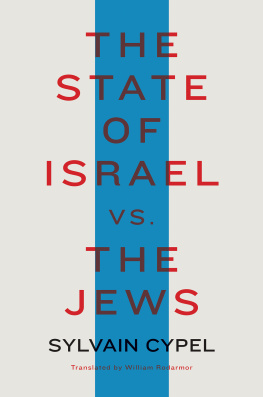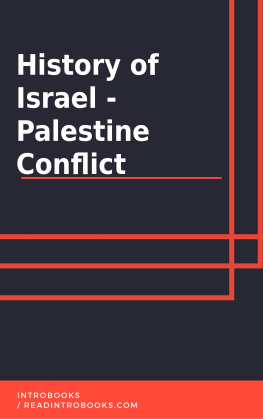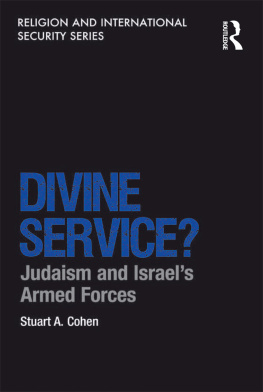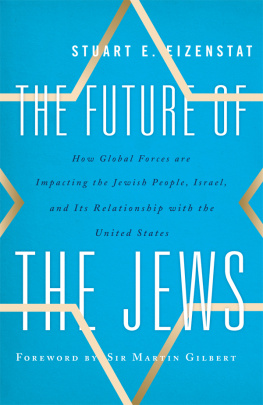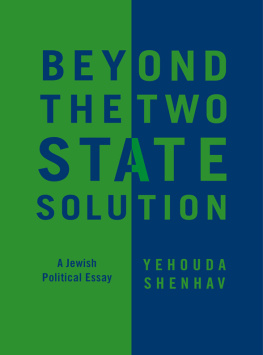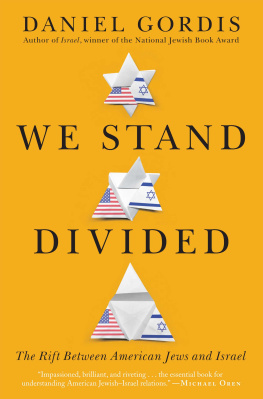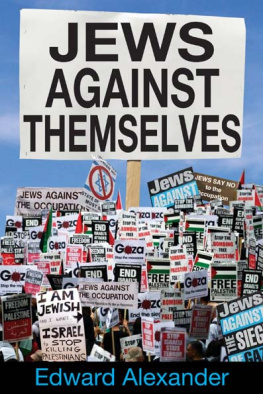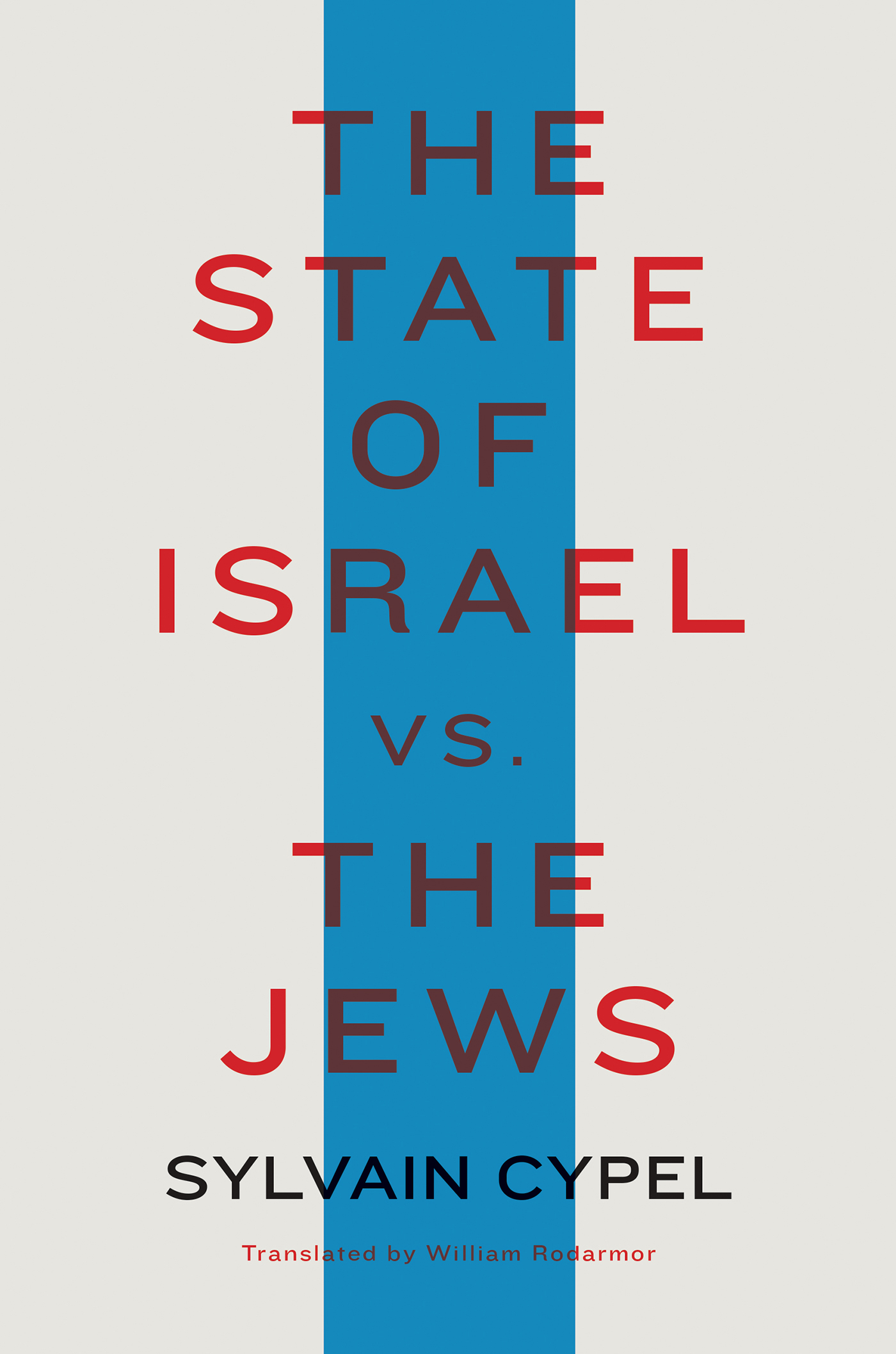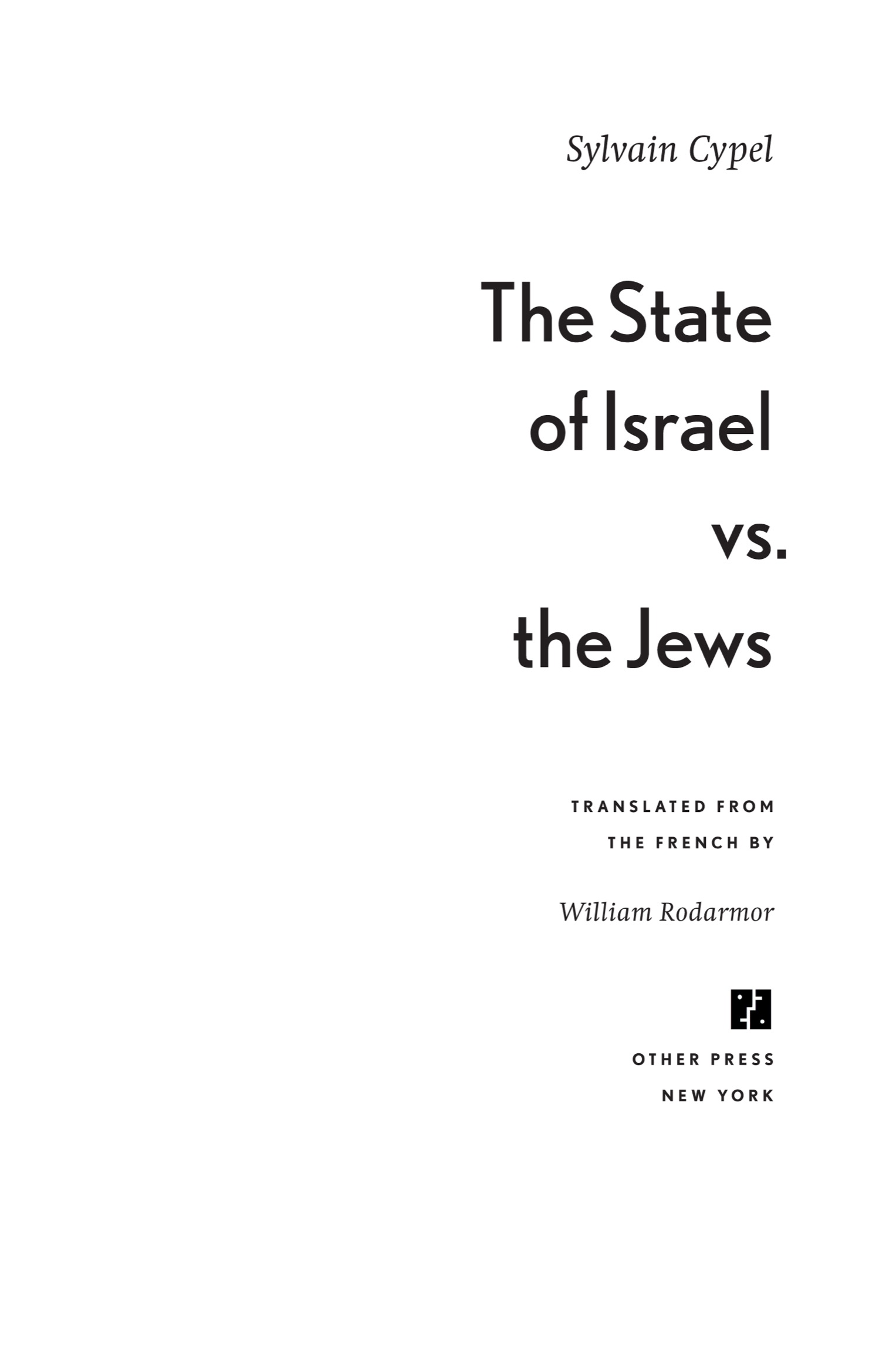ALSO BY SYLVAIN CYPEL
Walled: Israeli Society at an Impasse
Originally published in French as Ltat dIsral contre les Juifs in 2020 by ditions La Dcouverte, Paris.
Copyright ditions La Dcouverte, 2020
Translation copyright William Rodarmor, 2021
Map on by Valerie Sebestyen, based on this Wikimedia Commons map: https://commons.wikimedia.org/wiki/File:Control_status_of_the_West_Bank_as_per_the_Oslo_Accords.svg
Production editor: Yvonne E. Crdenas
Text designer: Julie Fry
All rights reserved. No part of this publication may be reproduced or transmitted in any form or by any means, electronic or mechanical, including photocopying, recording, or by any information storage and retrieval system, without written permission from Other Press LLC, except in the case of brief quotations in reviews for inclusion in a magazine, newspaper, or broadcast. For information write to Other Press LLC, 267 Fifth Avenue, 6th Floor, New York, NY 10016. Or visit our Web site: www.otherpress.com
The Library of Congress has cataloged the printed edition as follows:
Names: Cypel, Sylvain, author. | Rodarmor, William, translator.
Title: The state of Israel vs. the Jews / Sylvain Cypel; translated from the French by William Rodarmor.
Other titles: tat dIsral contre les Juifs. English | State of Israel versus the Jews
Description: New York : Other Press, [2021] | Originally published in French as Ltat dIsral contre les Juifs in 2020 by ditions La Dcouverte, Paris. | Includes bibliographical references and index. Identifiers: LCCN 2021005598 (print) | LCCN 2021005599 (ebook) | ISBN 9781635420975 (hardcover) | ISBN 9781635420982 (ebook) Subjects: LCSH: JewsPolitics and government21st century. | Arab-Israeli conflict1993- | JewsAttitudes toward Israel. | JewsIdentity. | Israel and the diaspora. | CitizenshipJews. | IsraelForeign relations21st century.
Classification: LCC DS128.2 .C9613 2021 (print) | LCC DS128.2 (ebook) | DDC 956.9405/5dc23
LC record available at https://lccn.loc.gov/2021005598
LC ebook record available at https://lccn.loc.gov/2021005599
Ebook ISBN9781635420982
a_prh_5.7.0_c0_r0
To
Lila, Dan, Matti, Emmanuel,
Suzanne & Rebecca
The depressing truth
is that Israels current behavior
is not just bad for America,
though it surely is.
It is not even just bad for Israel itself,
as many Israelis silently acknowledge.
The depressing truth today
is that Israel is bad for the Jews.
TONY JUDT
(19482010)
Contents
Introduction
An unbridgeable hiatus
Imposing Fear, Teaching Contempt
The reality of the military occupation
Pissing in the Pool from the Diving Board
How Israel has changed in fifty years
But Whats Your Blood?
The nation-state of the Jewish people
This Country Belongs to the White Man
An emerging idea: racial purity
Locate. Track. Manipulate.
Cybersurveillance, Israels new politico-commercial weapon
The Shin Bet State Is Here
When people vote for authoritarian democracy
A Species on the Verge of Extinction
Israeli civil society is suffering
Hitler Didnt Want to Exterminate the Jews
Netanyahu, fake history, and his anti-Semitic friends
Its Not Necessary or Healthy to Keep Quiet
The crisis in American Judaism
No, No! You cant quote me on that!
The blindness of French Jews
I Am Exhausted by Israel
A schism in Judaism?
The Last Goddamn Thing We Need
After Trump
Conclusion
Israel vs. the Jews
Introduction
An unbridgeable hiatus
The year was 1990. My father was nearly eighty, and he was patiently answering my questions. He and my mother lived in Charenton then, a tiny suburb just outside Paris. It was a Sunday morning, and like every Sunday in those years, I had come over to ask my father about his life. My mother was probably in the kitchen, cooking. My wife and children would arrive in a few hours, and we would all have lunch.
My father often spoke about his family, Judaism, and his complicated relationship with religion. The son of a somewhat unorthodox Orthodox rabbi, he became an atheist but remained devoted to the Bible (things arent always simple). He talked about why he turned his back on religious practice, but also about his youth in Poland, his love of Yiddish literature, why he didnt go to Palestine when he had the chance, and much else.
On this particular Sunday, my father was recalling life in his birthplace, Vladymyr, in what is now Ukraine. It was a typical town, buffeted by the regions constant upheavals. Its nearly forty thousand inhabitants included twenty thousand Ukrainians, fifteen thousand Jews, two or three thousand Poles, and a few others. In 1911, when my father was born, it was a part of the Czarist Empire. As an eight year old, he watched the Red Army march into the town, and remembered how this raised the Jewish populations hopes. The pogroms would finally end! But the Bolsheviks were defeated two years later, and withdrew. The town fell under the control of the nationalist Polish state, with its anti-Semitic aggressions and quotas for Jewish students.
My father left for France in 1938, when he was twenty-seven. It was a lucky move, because the town was occupied by the Soviets the next year, then in 1941 by the Germans. On September 1, 1942, Nazi Einsatzgruppen killed nearly the entire Jewish population, including my fathers parents, his brothers, their wives and all their children, his uncles, aunts, and cousins. In 1945 Vladymyr became Soviet again, and was eventually named Volodymyr.
In the 1920s, as my father told it, young Jews like him eager to break free of the oppressive anti-Semitic atmosphere and the stifling rule of shtetl rabbis, had only three options. The one chosen most often was Bundism, a worker-oriented ideology behind Polish syndicalism during that countrys industrialization. The Bund advocated a socialism in which Jewish nationality would enjoy broad cultural autonomy built around its language, Yiddish. The second option was Communism Workers of the world, et cetera and many young Jews signed on. Its path was the steepest, but it seemed the most promising. An end of exploitation for all, including Jews, and the dawn of a wonderful society whose concomitant universal brotherhood would necessarily lead to the end of anti-Semitism. The third option was Jewish nationalism, which combined two great currents. The largest by far joined ethnic nationalism and socialism; the other was ultranationalistic and chauvinistic, like most such movements in Eastern Europe. This Jewish nationalism, which melded all those tendencies, was called Zionism. Its goal was to build a Jewish state in Palestine, which was then under British colonial rule. At fifteen, my father threw away his kippah and joined socialist Zionism.
On the Sunday in 1990 when we were talking it was soon after the fall of the Berlin Wall my father interrupted himself in midreminiscence and said, So you see, we won in the end. We meaning Zionism and the Zionists. The Bundists, he noted, had been exterminated in the Nazi genocide, and Stalin took care of the ones Hitler didnt kill, sending their leaders to the gulag or the firing squad. Of Bundism and Yiddish-based culture, practically nothing remained. Communism had failed as well, as anyone looking around Eastern Europe could see, and my father predicted there would soon be nothing left of it, either East or West. But we Zionists are still here, he said. Israel is a tangible reality. A strong state with a developed economy, a powerful army, and an active society. We won, he repeated. It was one way of continuing a very old conversation with me, arguing that the choice hed made in his youth, the one that shaped the rest of his life and his political consciousness, had been the right one.

